The University of Chicago Press, Chicago 60637
The University of Chicago Press, Ltd., London
1999 by The University of Chicago
All rights reserved. Published 1999
Printed in the United States of America
11 10 09 08 567
ISBN: 0-226-66968-8 (cloth)
ISBN: 0-226-66969-6 (paper)
ISBN: 978-0-226-18983-3 (e-book)
Library of Congress Cataloging-in-Publication Data
Piot, Charles.
Remotely global : village modernity in West Africa / Charles Piot.
p. cm.
Includes bibliographical references and index.
ISBN 0-226-66968-8 (cloth : alk. paper).ISBN 0-226-66969-6 (paper : alk. paper)
1. Kabre (African people)Social life and customs. 2. Kabre (African people)Government relations. 3. Kabre (African people)Politics and government. 4. VillagesTogoKuwd. 5. Kuwd (Togo)Social life and customs. 6. Kuwd (Togo)Politics and government. I. Title.
DT584.45.K33P56 1999
966.81dc21
99-11071
CIP
 The paper used in this publication meets the minimum requirements of the American National Standard for Information SciencesPermanence of Paper for Printed Library Materials, ANSI Z39.48-1992.
The paper used in this publication meets the minimum requirements of the American National Standard for Information SciencesPermanence of Paper for Printed Library Materials, ANSI Z39.48-1992.
Remotely Global
Village Modernity in West Africa
Charles Piot
The University of Chicago Press
Chicago & London
For Kalina
Contents
Acknowledgments
This project belongs to many others, as much as to myself. Literally every page contains the traces of encounters, both small and largea conversation with a friend late at night, a remark by a teacher years ago, a readers suggestion, someone elses inspired writing on a particular problem, and, needless to say, a multitude of conversations and experiences with Kabre interlocutors. Words are unable to express my profound gratitude to all those who have changed me and enriched the text.
My fieldwork in northern Togo was generously supported by the Social Science Research Council, the National Science Foundation, and the Wenner-Gren Foundation for Anthropological Research. To each I am most thankful. I also gratefully acknowledge the Togolese Ministre de lEducation Nationale et de la Recherche, and the Direction de la Recherche Scientifique, for research authorization and support throughout my several stays in Togo. At the University of Chicago Press, David Brent was a terrific editor, shepherding the manuscript through the review and editing process both expertly and expeditiously. The presss two reviewers, Alma Gottlieb and Paul Stoller, made many perceptive and important suggestions that have made this a much better book than it was. Copy editor Evan Young and production editor Leslie Keros skillfully helped me put the finishing touches on the manuscript.
In Paris and Lom, many people contributed in myriad ways to making my research both possible and pleasurable. In particular, I wish to thank Jean-Claude Barbier, Kodjo Batema, Sid Bliss, Jacques Delord, Marty Havlovic, Kokou Kansoukou, Bakolea Karma, Anne-Marie Pillet-Schwartz, Alfred Schwartz, M. K. Simtekpeati, and Raymond Verdier. Bassari Ebia was an indispensable help with the orthography of Kabre words, and has been a constant friend and source of insight into the culture and politics of present-day Togo.
In the north of Togo, my debts run deeper and extend to more individuals than I could begin to enumerate. The people of the village of Kuwd were extraordinary hosts throughout my various visits. Without the support and sage advice of Chief Halatakpendi Tedihou and Chief Palabi Kansoukou, my research would never have been possible. The two families with whom I have lived, those of Halitok Korakoma and Tamouka Anamissi, and their wives, Kpm Bassliki and Mama Kpnkp, were inordinately generous and gracious in accepting me into their lives. Most importantly, without the friendship and research assistance of Nnamnaw Atakpai, Kouwnam Bassliki, and Tiknaw Gnossi, my research would have been unthinkable. To these three I owe much more than I am able to return.
Many teachers, students, friends, and colleagues in the United States have nourished me intellectually over the years, and especially throughout the long gestation of this project. The members of my dissertation committee at the University of VirginiaDavid Sapir (the chair), Chris Crocker, Fred Damon, Joe Miller, and Roy Wagnerwere inspiring teachers and scholars, and forever challenged me to exceed my own expectations. Fred Damon, in particular, deserves special mention. He schooled me in the enchanted world of gifts and commodities and contributed to my growth as a scholar in ways that are too many and varied to enumerate. Marilyn Stratherns provocative work, especially The Gender of the Gift, has played a vital role in my own thinking about problems anthropological and her influence runs throughout the pages that follow. Dennis McGilvray and Paul Shankman were special friends and fabulous colleagues during my years teaching at the University of Colorado. Orin Starn read every chapter of the manuscript and, in his own inimitable way of combining compliment with critique, offered incredibly smart commentary that has enhanced the text immensely. For many years, this project was Nancy Ehrenreichs as much as my own. Without her keen interest and support, her embrace of Kabre culture, her fine ear for the language, and her tireless editing of earlier versions, this would have been a very differentand a much diminishedbook. Its authorship is in many ways hers as much mine. There are many other friends and colleagues whose influence is in the text, either directly or indirectly: Lee Baker, Barbara Bianco, John Chernoff, Don Donham, Carrie Douglas, Susan Erikson, Kathy Ewing, Eric Gable, Jane Guyer, Jennifer Hasty, Danny Hoffman, Karla Holloway, Ralph Litzinger, Don Moore, Mack OBarr, Susan McKinnon, Marc Schloss, Barbara Voorhies, and Teresa Wilkins.
Finally, I wish to acknowledge the support of my families. Early on, in myriad often-unsuspecting ways, my parents, Pat and Andr Piot, schooled me in the challenges and pleasures of trafficking across various cultural divides. Their unfailing support of my unorthodoxies has always been an inspiration. Anne Allison has not only been an astute reader and critic but also an incomparably supportive partner. She made the struggle to complete the manuscript not only possible but also pleasurable. My debts to her, both intellectual and personal, have no end. Remotely Global is dedicated to my daughter KalinaKuwd pelo (Kuwd girl), as many in Kuwd like to call herwhose calm presence, sweet smile, and boundless energy forever fill my imaginings when we are apart.
Note on Kabre Orthography
In the text that follows, I have retained the French spelling that is used in Togo today for the proper names of people and places. All other Kabre words are rendered in the dialect of the northern massif (Lamatessi), where Kuwdthe community in which I lived and conducted researchis located, and are phoneticized according to International Phonetic Alphabet conventions. Thus, consonants correspond to their standard English pronunciations, except for c which is pronounced like the ch in charming, which is pronounced like the dg in edge, which is pronounced like the ng in sing, and which is a throaty r like that in the French trs. Vowels are pronounced as follows: a like the a in far, e like the a in skate, like the e in hen, i like the e in be, like the i in it, o like the o in hotel, like the o in come, like the ou in ought, and u like the u in flute. Bassari Ebia, a Kabre linguist at the Institut National de la Recherche Scientifique in Lom, and a native of Faren in the northern massif, very generously helped me with the phoneticization of Kabre words.
Next page
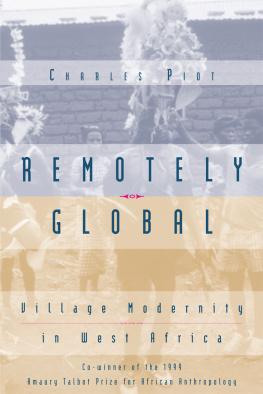

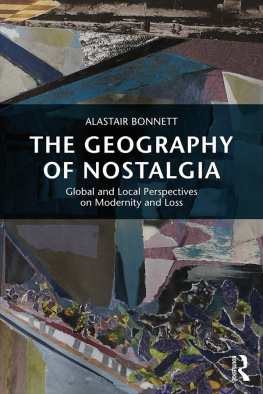


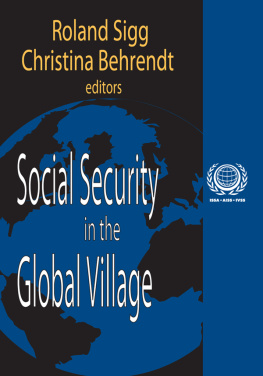
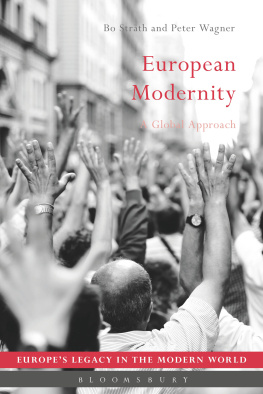
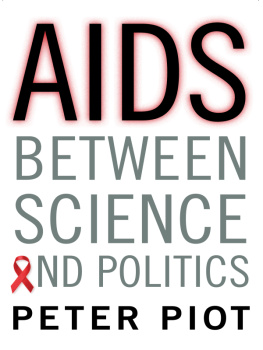
 The paper used in this publication meets the minimum requirements of the American National Standard for Information SciencesPermanence of Paper for Printed Library Materials, ANSI Z39.48-1992.
The paper used in this publication meets the minimum requirements of the American National Standard for Information SciencesPermanence of Paper for Printed Library Materials, ANSI Z39.48-1992.